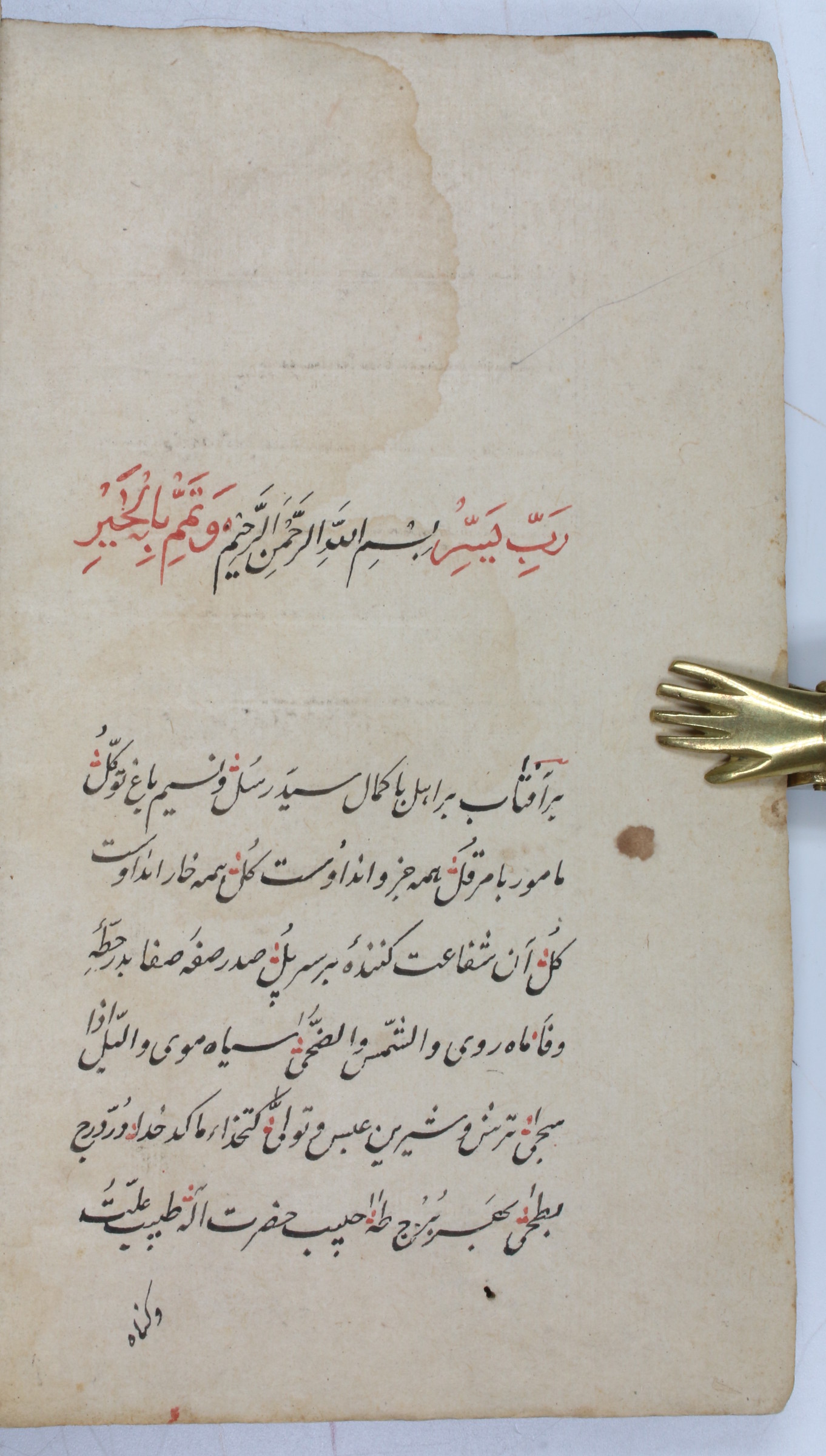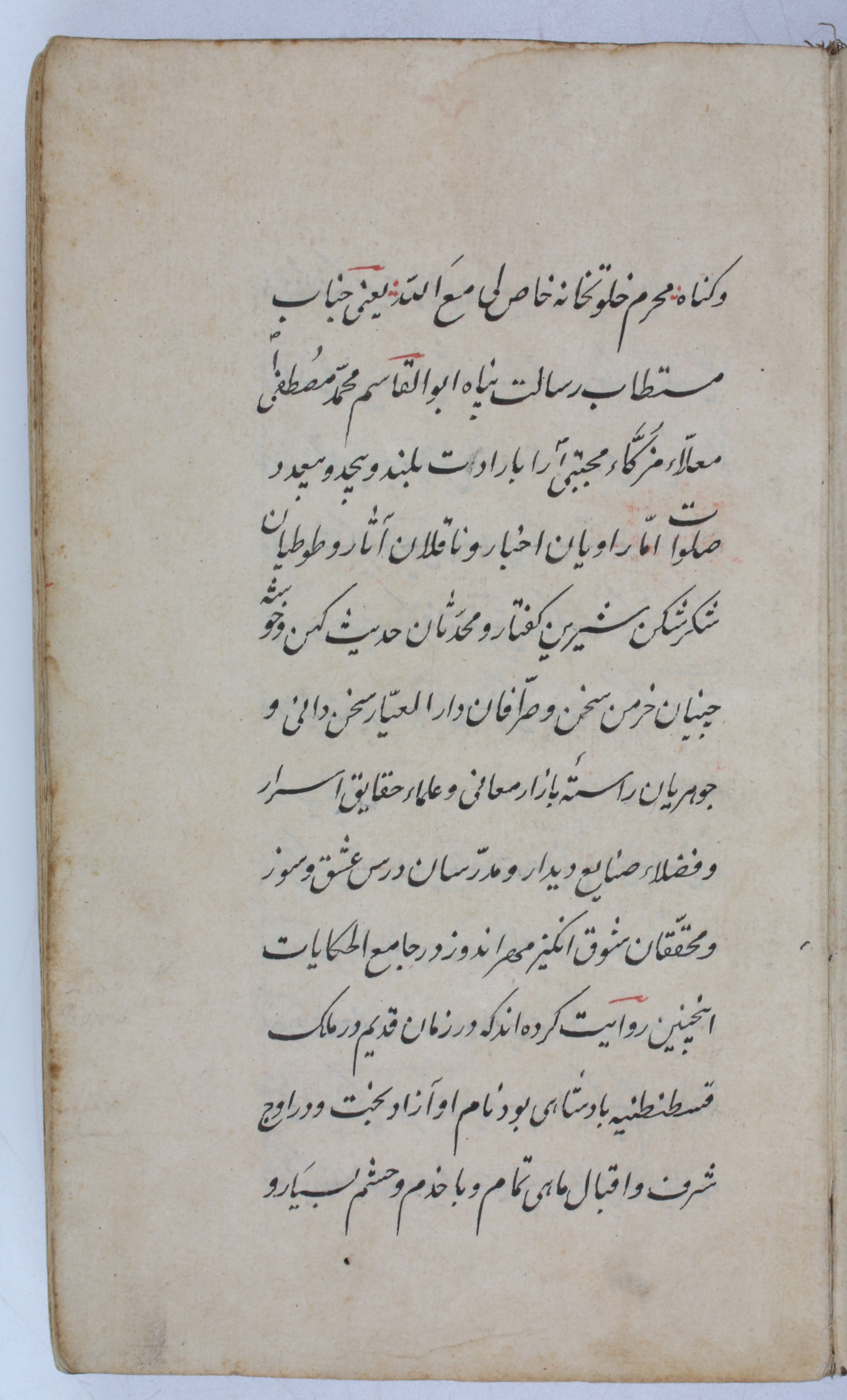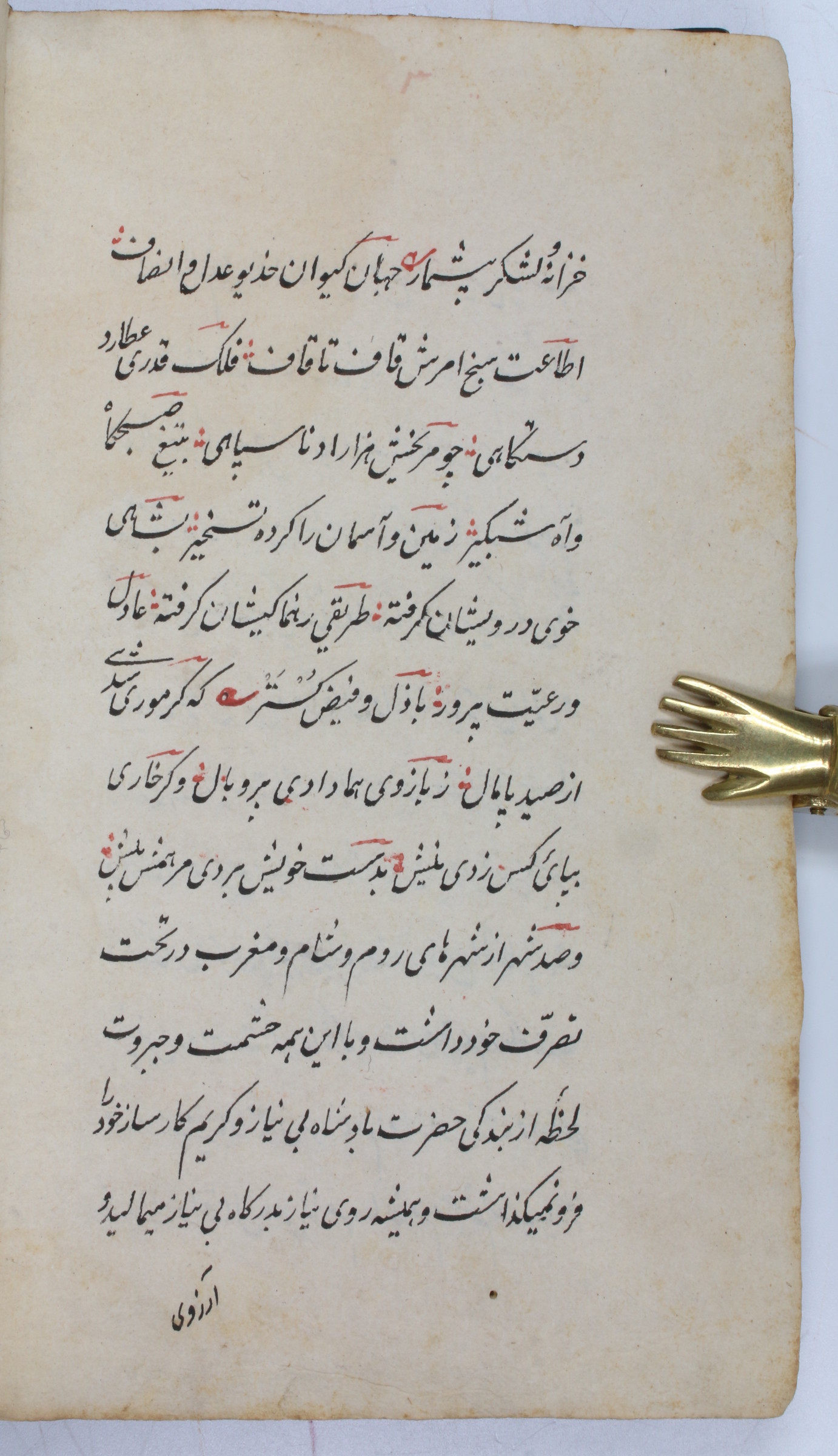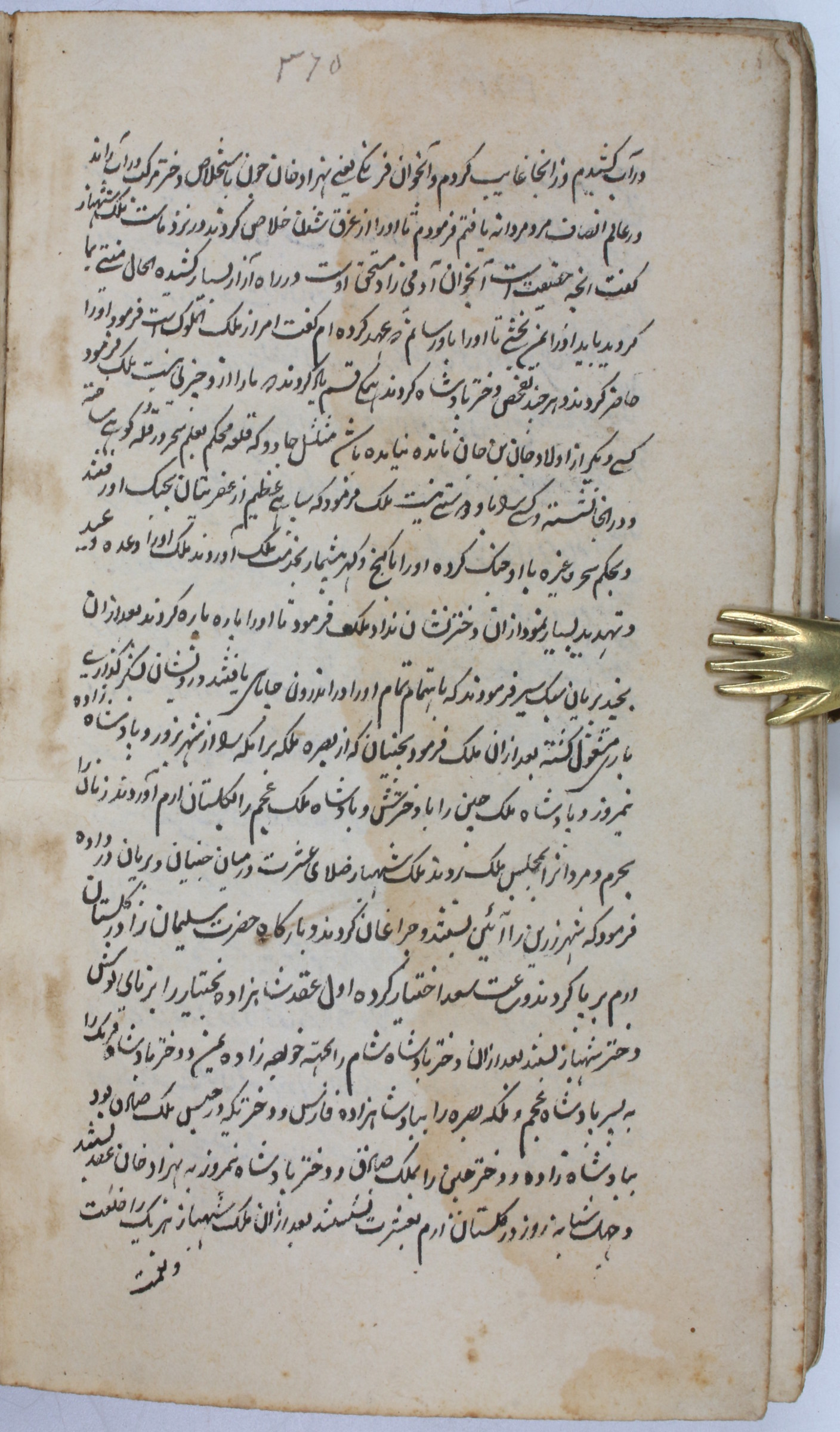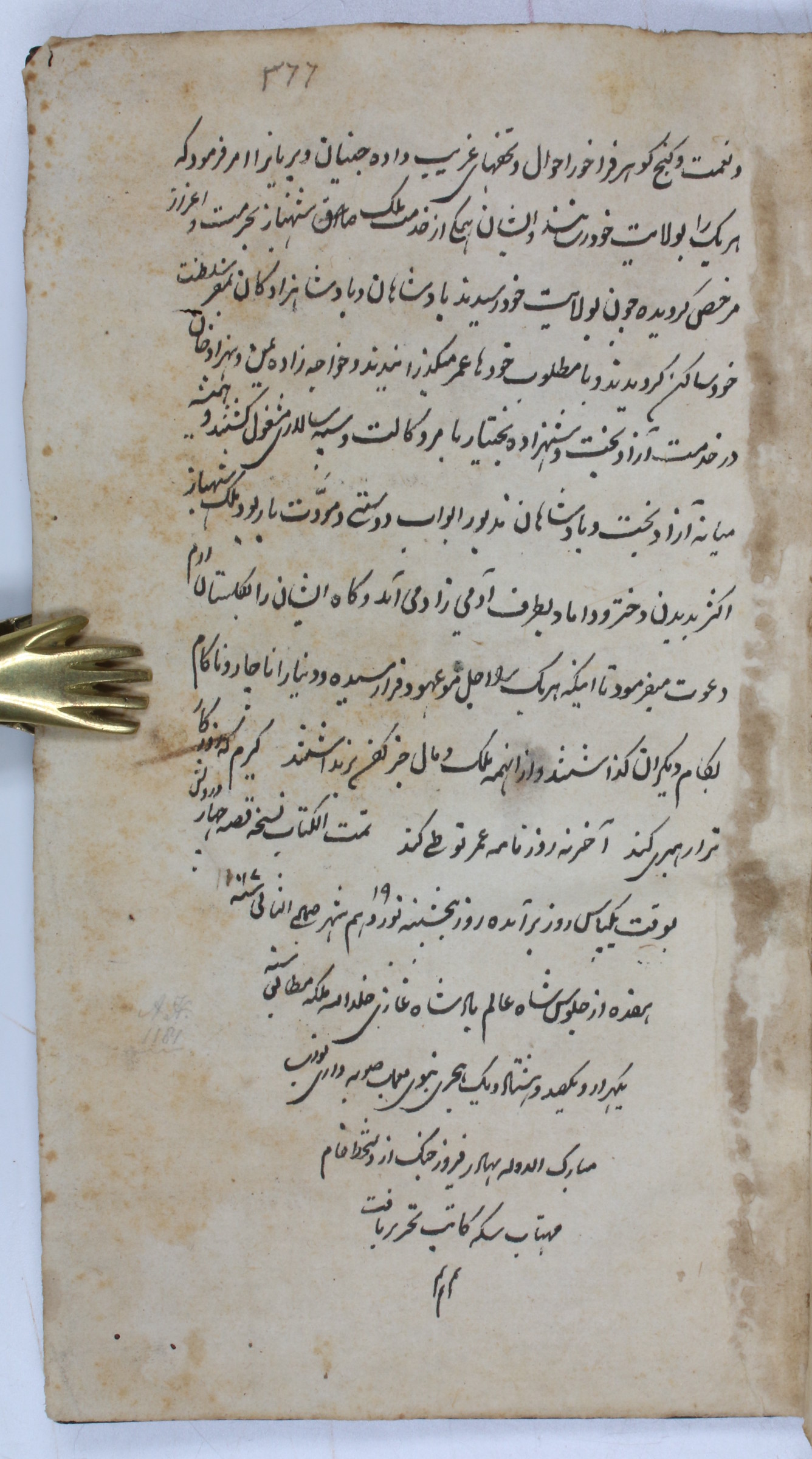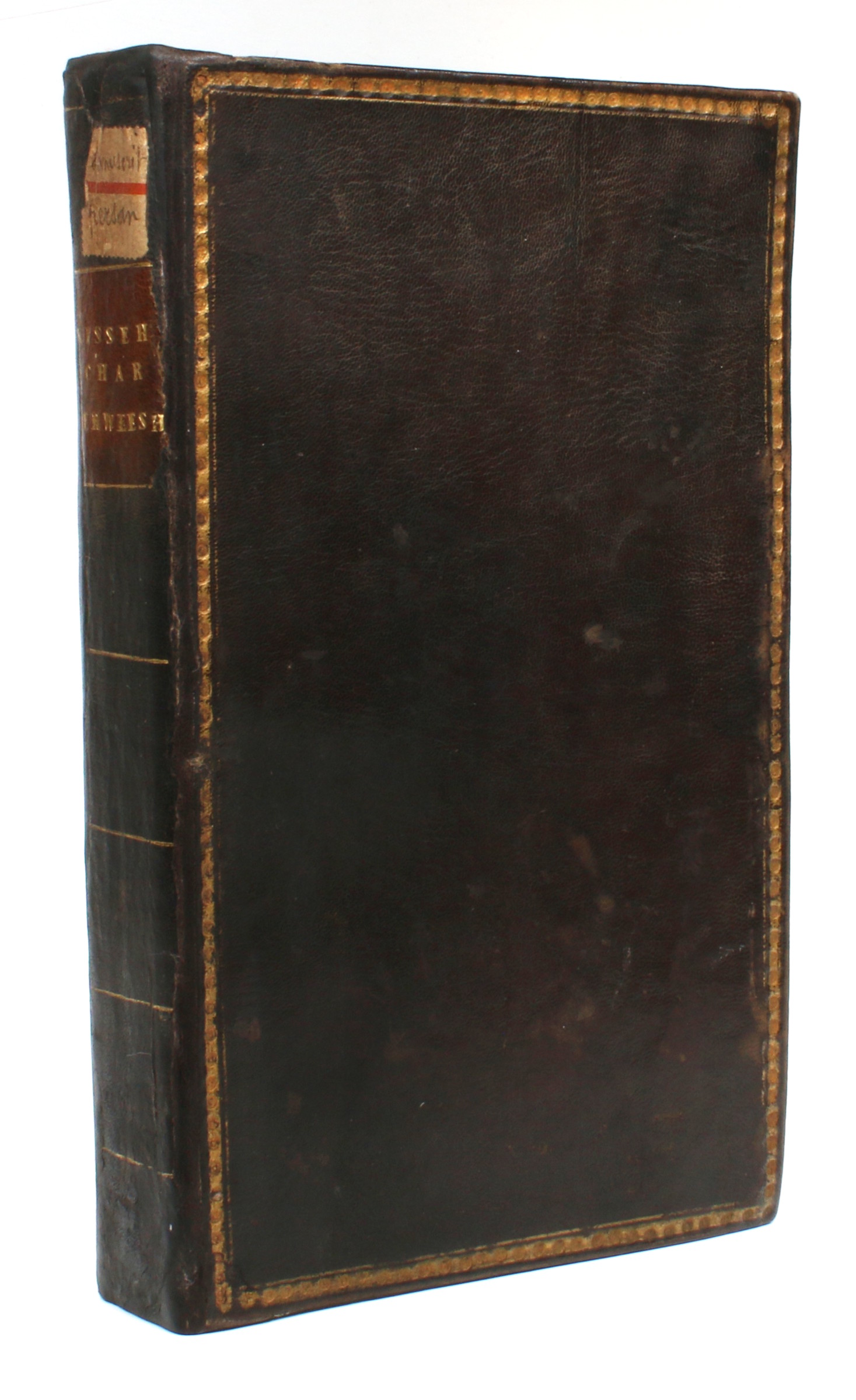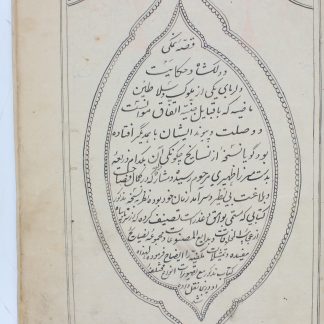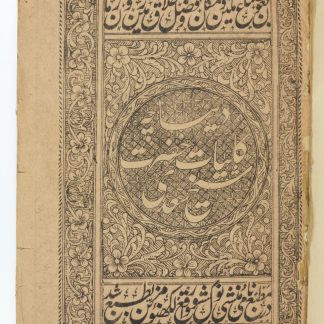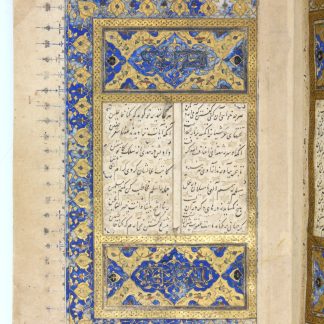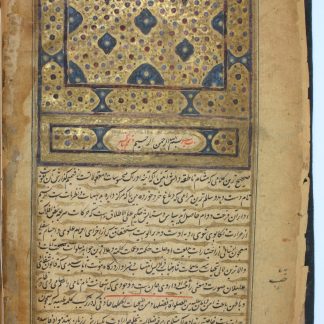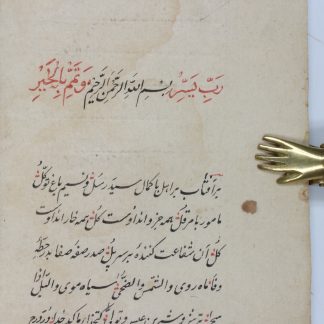Four tales from four dervishes
Qissat Shahar Darvish [The Story of the Four Dervishes].
8vo (140 x 235 mm). 188 ff. Persian manuscript on paper. Black nasta'liq script in 12 lines. Contemporary brown morocco, ruled in gilt, titled in gilt on morocco spine label.
€ 4.500,00
"Qissa-ye Chahar Darvesh" ("The Story of the Four Dervishes"), a collection of four lively allegorical tales attributed to Indian Sufi poet and writer Abu'l Hasan Yamin ud-Din Khusraw (1253-1325), known as Amir Khusraw.
Khusraw was the most famous Persian poet in medieval India, famous for a wide variety of poems, music, and epics. "The Four Dervishes" are not often officially listed as one of his works, as the attribution is uncertain. Regardless, the themes Khusraw enjoyed and promoted in Persian poetry occur here: fantastical adventures, star-crossed lovers, and devout Islam and Sufism infuse the narrative. Stylistically, the stories have some similarities to the Thousand and One Nights, being a series of open-ended vignettes told by four dervishes to a king, who at the end of the tales is able to use his worldly powers to make happy endings for each of the stories he has been told. Popular in India, the stories were eventually also translated into Turkish. Here, the tales are told in a handsome nasta'liq script, with each new dervish's story marked in red ink.
Light wear, spine professionally restored; generally bright and clean. Provenance: 20th century Parisian private collection, kept in the family for several generations and dispersed in 2022.

